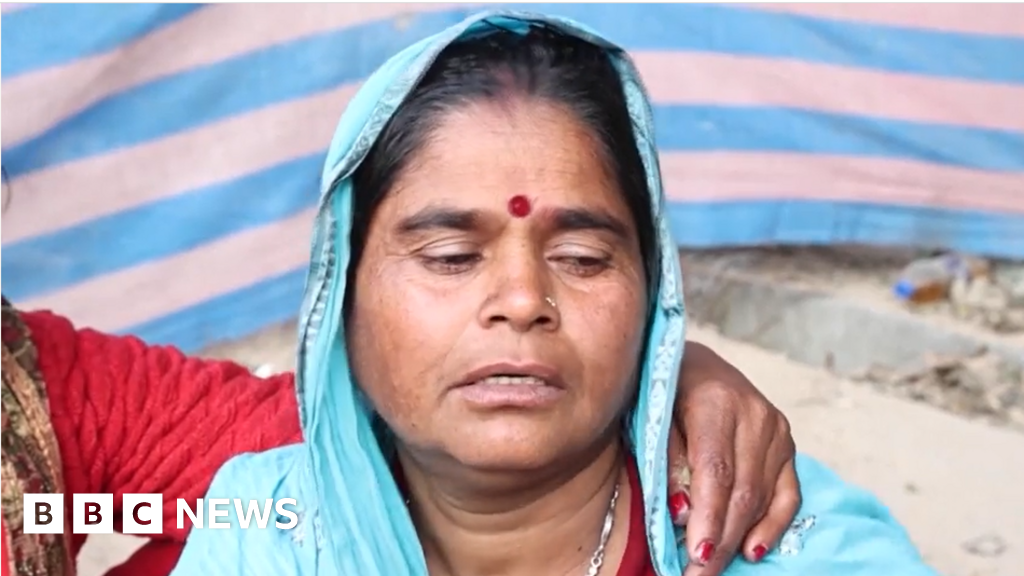Zuma big election ‘winner’ as South Africa heads for coalition government | Jacob Zuma News
Johannesburg, South Africa – Former President Jacob Zuma, is emerging as the biggest victor of South Africa’s general elections as his new breakaway uMkhonto we Sizwe Party (MK Party) appears poised for major gains at the expense of the country’s governing African National Congress.
With more than two-thirds of votes counted on Friday evening, the MK appeared to be on the cusp of grabbing power in KwaZulu Natal, comfortably leading in a province where the ANC has never previously lost since the first post-apartheid elections in 1994.
Nationally, as results trickled in, the MK stood third with approximately 12 percent of the vote, behind the ANC with about 42 percent of the vote and the principal opposition party, the Democratic Alliance (23 percent). The votes counted so far paint a clear picture of the MK winning over chunks of the ANC’s traditional support in its strongholds.
In addition to KwaZulu Natal and the Western Cape — where the DA looked set to return to power with a clear majority — the ANC has also taken a lashing in the province of Gauteng, where it is also far short of a majority of its own.
Over the past two days, these trends have only solidified, and if they persist, the ANC will — for the first time in 30 years — need to plead with some opposition parties to support it in a national coalition government if it is to remain in power under President Cyril Ramaphosa. It will also need to do the same to stay in power in provinces like Gauteng.
These results signal the “death of ANC dominance”, said analyst Sizwe Mpofu-Walsh.
“I think it is good. There is as much hope as there should be fear. People are worried and uncertain of what’s going to happen; it will open new avenues for change and new avenues for accountability,” he said. Mpofu-Walsh said the ANC’s electoral loss was a combination of arrogance and denial of their failures.
Independent political analyst Sandile Swana said the ANC had joined other liberation movements that were punished for failing to deliver on their liberation promises. “Swapo in Namibia, Zanu PF in Zimbabwe and the ANC in South Africa are in exactly the same boat,” he said, referring to the parties that led the independence movements in Namibia and Zimbabwe respectively.
Imraan Buccus, an academic and researcher at Auwal Socio-economic Research Institute, said the election results point to the ANC’s implosion. “It is consistent with what has happened to liberation movements across Africa. There are examples in Zambia and Kenya,” he said.
Buccusa said that a combination of ANC failures and an unequal economy resulted in the election outcome.
According to the World Bank, 55 percent of South Africa’s population is considered to live in poverty. The ANC’s 30 years in office have been characterised by deepening joblessness – currently at 33 percent. Systemic corruption and government inefficiency, resulting in worsened conditions of living, are also among the issues facing South Africans.
Populist politics
Early election projections suggest that while the ANC has seen a massive loss in support, other opposition parties were unable to capitalise on this.
As results were consolidated, the DA showed marginal gains. Its leader, John Steenhuisen, told journalists on Friday that he was happy with the growth of his party. “Growth is growth,” he said when pressed about his party’s slight increase in support. It won 21 percent of votes and seats in the 2019 elections.
Meanwhile, it is not just the ANC that appears to have lost voters to the MK. The left-wing Economic Freedom Fighters’ numbers have dropped, too.
The MK Party drew support across Zuma’s home province of KwaZulu-Natal, attracting voters in rural and urban areas, as well as in areas in Gauteng and Mpumalanga provinces.
Zuma, a stalwart of the anti-apartheid movement who was removed from presidential office in 2018 amid a cloud of corruption allegations, is a popular figure among many South Africans and has relied on populist policies to attract votes.
During the election campaign, he attributed South Africa’s struggles to “white monopoly capital” and fashioned his successor, Ramaphosa, as an “agent of capital”. He also criticised the ANC for its failures without conceding that he was president of the party for 10 years and deputy president for as many. Zuma made bold promises to end unemployment and poverty.
He has denied any wrongdoing and has styled himself as a victim of the judiciary. The former president holds a criminal record for contempt of court and, as a result, was imprisoned in July 2021.
Swana said Zuma’s scandals did not derail his support. “Zuma has been able to profile himself as a victim who is persecuted by all,” he said.
The ANC’s national chairperson, Gwede Manatshe, conceded that he was surprised by the MK Party’s performance in KwaZulu-Natal and conceded that the ANC had performed badly in this year’s polls.
“MK is doing well in KZN; they have surprised me a little bit,” he said.
Mantashe however, attributed Zuma’s support to ethnic nationalism, arguing that Zuma had appealed to the province’s Zulu population, with which he shares a tribal identity, to galvanise support.
But Swana said Zuma’s support went beyond identity politics.
“Zuma is loved by the people in KwaZulu-Natal,” he said, attributing it to the role he played in negotiating an end to post-apartheid violence among the majority Zulu population in that province.
He pointed to how Zuma’s entry into the MK Party effectively fractured the ANC, with many other party leaders and supporters also crossing over to the former president’s new political home.
That internal split has cost the ANC significantly, he said.
Zuma’s use of populist policies and rhetoric, and his success with that strategy, was in keeping with the global trend of support for populist leaders, said Buccus, citing former Brazilian President Jair Bolsonaro and former Philippines President Rodrigo Duterte as examples.
“In the context of the current failures of the ANC government, people look for alternatives,” he said. “We have seen examples like this worldwide.”
Who forms the next government?
While the Electoral Commission is expected to announce final results on Sunday, the ANC has already begun informal talks with possible coalition partners.
The ANC’s Mantashe said the party had not planned for this outcome, saying, “Coalitions are a consequence, you don’t plan for consequences.”
However, the MK Party had ruled out a coalition with the ANC.
Other opposition parties remained tightlipped on whether they would consider talks with the ANC, saying they would wait for final results to be announced first. According to law, a president has to be elected within 14 days after the election results are proclaimed by the Electoral Commission.
Mpofu-Walsh said that South Africa’s political terrain is expected to be “noisy and unstable”.
But he said the full consequences of the ANC’s decline in support will be seen in time.
Check out our Latest News and Follow us at Facebook
Original Source







